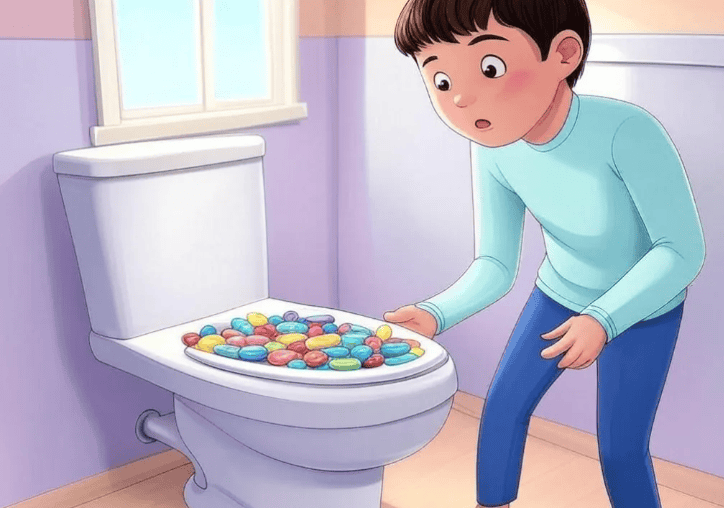At Patchwork, we usually don’t recommend anyone take a multivitamin. If we suggest supplements, it’s for specific needs, and they must show results; otherwise, we advise stopping.
While it’s true that extra water-soluble and fat-soluble vitamins can end up in urine, the actual value of multivitamins depends on several factors, including knowing how important vitamins are for health and recognizing vitamin deficiency diseases.
Let’s explore this further.
Nutrient Absorption and Excretion
Taking multivitamins can cause your urine to be bright in color, especially because of B vitamins like Riboflavin (vitamin B2). But this doesn’t mean the vitamins are wasted:
- Your body takes in what it needs and gets rid of the extra.
- Just because vitamins show up in urine doesn’t mean they didn’t help your body first. This is particularly true for important nutrients like Vitamin A, Vitamin B1 (thiamine), and Vitamin E, which are essential for good health.
Knowing how your body absorbs nutrients is important, especially for older adults who need to meet daily vitamin requirements. Also, noticing changes in urine color can help you spot signs of vitamin deficiencies or check how well your vitamin supplements are working.
Potential Benefits
Research on how well multivitamins work has shown mixed results:
- Some studies indicate that certain groups may benefit, like men who might lower their cancer risk by taking Vitamin B3 and older adults who could see improved memory.
- Multivitamins can help cover nutritional gaps, especially for people with unhealthy diets or higher nutritional needs. This is particularly important for those who don’t get enough essential vitamins like B2, B5, and K in their daily meals. [These deficiencies are often seen in individuals with obesity](<https: data-preserve-html-node=”true”//www.cdc.gov/obesity/downloads/fandv_2011_web_tag508.pdf>), highlighting the potential role of multivitamins in addressing such nutritional shortfalls.
Limitations and Controversies
There is ongoing debate about the benefits of multivitamins for most people, with different studies showing different results:
- Many large studies found that multivitamins do not significantly help prevent heart disease, cancer, or lower the risk of death in healthy adults.
- The U.S. Preventive Services Task Force stated there isn’t enough evidence to recommend multivitamins for preventing diseases.
It’s important to recognize the role of vitamins and minerals in health. While multivitamins can be beneficial for some, lacking essential nutrients like Vitamin B6 and folate can lead to deficiency diseases.
Things to Think About When Using Multivitamins
Whether or not to take multivitamins depends on individual needs:
- [They can be helpful for pregnant women](<https: data-preserve-html-node=”true”//www.webmd.com/diet/health-benefits-of-multivitamins>) who need important vitamins like Vitamin B9 (folate) for their baby’s development, older adults who might struggle to absorb nutrients, or people with specific nutritional gaps that affect their health.
- However, for most healthy people who eat a balanced diet, [multivitamins might not offer much extra benefit](<https: data-preserve-html-node=”true”//www.health.harvard.edu/mens-health/do-multivitamins-make-you-healthier>). It’s good to remember that getting vitamins and minerals from fortified foods and following dietary guidelines can usually meet your needs without needing supplements.
Expert Opinions
Health professionals have different views on using multivitamins:
- Some experts believe that a healthy diet should give you all the nutrients you need without any supplements, and that the best sources of essential vitamins and minerals are nutrient-rich foods.
- Others think that multivitamins can act as a safety net for those who find it hard to get enough nutrients from their diet alone.
This isn’t entirely correct.
Many people assume that extra vitamins are harmless and will just be removed by the body. However, this view overlooks the fact that the body needs the liver, kidneys, and other detox systems to filter out excess vitamins.
As I mentioned earlier in “Your body (fat) is polluted,” our detox systems and organs are often overwhelmed in today’s world. In fact, your body could even be toxic, which makes things more complicated.
I know several friends who have experienced hypervitaminosis A, a condition caused by too much vitamin A from supplements. However, everyone I know who faced health issues due to high vitamin A levels didn’t take any supplemental vitamin A or multivitamins.
Moreover, the idea that excess vitamins will simply be excreted is outdated and doesn’t apply well to today’s context. As I pointed out earlier, many multivitamins contain ingredients that are not high-quality or easily absorbed by the body. This aligns with findings from a Houston Methodist article which questions the effectiveness of these supplements.
There seems to be little regulation on how much of each vitamin can be included in a pill. While it’s true that taking too many vitamins can lead to them being excreted in urine, dismissing them as “expensive pee” ignores their potential benefits for some people, as noted by the Australian Medical Association chief Michael Gannon in an Independent article.
I think it’s reasonable to view broad-spectrum vitamins as “expensive pee.” The choice to take vitamins should depend on individual nutritional needs, especially for older adults learning about their daily vitamin requirements. The first step should always be to get vitamins from food.
The next step is to consider taking specific vitamins you might need—like vitamin C or magnesium—and make sure they are of high quality.


Leave a Reply